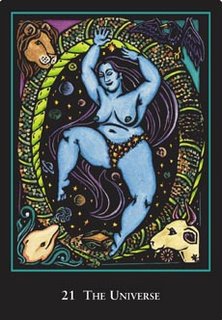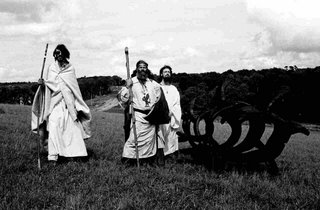 Just say no
Just say noWhen is a negative not a negative? When it’s a positive negative. Read on to find out more.
Sometimes the most positive word you can say is no.
Knowing how to say no is important in the art of survival on this planet. Not trying to please everyone all the time. Being clear who you are and what you want. Knowing what your limits are. Not allowing yourself to be drawn into other people’s dramas and dilemmas. Refusal to accept other people’s traumas as your own.
That doesn’t mean you can’t be sympathetic. It just means you don’t have to get bamboozled by other people’s emotional complexes.
Learning how to say no is one of the essential lessons in the often painful process of growing up. Failure to learn this lesson is to invite neurosis into your life, to be sidelined into a world of infantile dependency and permanent insecurity. It is to be at everybody’s beck and call, to be a servant rather than an instigator, to be emotionally and creatively drained.
We all know this. How else are we to survive the contradictory demands of everyday life?
And yet, looked at closely, the statement is absurd. How can a negative be positive?
The fact that it can be, and that we understand the essential meaning nonetheless, is a testament to the subtlety of our thought processes.
Everyone knows how to laugh at a joke. Everyone understands irony. Irony is saying one thing and meaning something else. Without irony life would be very dull indeed.
And yet this is precisely the problem with a certain kind of positive-thinking New Age philosophy: that it doesn’t seem to understand irony.
For a while last year I was involved with one of these positive-thinking types. Every time things went wrong he would say, “think positive.” He was always quick to draw a positive lesson from any negative event.
Unfortunately there were far more negative events in his life than positive ones. He would repeat his “think positive” mantra maybe twenty times a day. That’s how often things were going wrong. There wasn’t a day that went by when things didn’t go spectacularly - I’m tempted to say “positively” - wrong. Personally I was inclined to put this down to the negative effect of his tiresome positivity.
It all came to head one day when he crashed his car. We were on our way to a football match. We were late. Somehow things had got delayed. From the minute I met up with him he was being aggressively positive about everything.
We got to a busy crossroads. It was twilight, the rush hour. Headlights were streaming by along the road in front of us like freckles of moonlight on a fast-flowing stream. My associate was rocking impatiently at the wheel, looking up and down the road, waiting for a gap in the traffic.
I said, “calm down. I’d rather we got there late than not at all.”
“Think positive!” he said, and launched the car across the road, in front of an oncoming vehicle.
There was a screech and a sickly crunch, followed by the sound of shattering glass.
After that, and all the drama of the heated exchange between drivers in the middle of a busy duel carriageway - the police cars, the fire brigade, the endless stream of witnesses - I was treated to a rundown of his positive thinking philosophy.
“We were obviously not meant to go to the football match,” he said. “Think positive!”
“No!” I said, losing my temper at last. “I don’t believe in positive thinking.”
“So what do you believe in then? Negative thinking?”
Which just goes to show the dumb crudity of the positive thinking movement. They see everything in black-and-white. If you don’t think positively, you must think negatively.
One friend of mine practices what she calls “creative pessimism”. By this she means that she imagines the worst so that she will be pleasantly surprised if it doesn’t happen.
When I mentioned this to my positive-thinking acquaintance he raised his hand, palm outward, as if defending himself from an evil spell.
Actually the whole movement is a form of bullying. It is an attempt to force the universe (and everyone in it) into doing what you want. It is a form of sympathetic magic that says that by thinking relentlessly, remorselessly positive all the time you can bludgeon the universe into adapting to your will.
As it happens you can think both positively and negatively at the same time.
A few years ago I broke a rib by falling off my bike onto a tree stump. Then a few weeks ago I broke the same rib by putting too much pressure on it while attempting to change the battery on my old VW camper. On both occasions I learned that it can hurt to laugh, a fact which I suddenly found immensely - and painfully - funny. It still hurts now.
Ha!
Ouch!
I can’t stop myself from laughing. In fact the more I laugh, the more it hurts and the more I find it funny.
It is a function of language to divide the world up into mutually exclusive pairs of opposites. Sweet and sour. Black and white. Up and down. North and south. Man and woman. Good and evil. Positive and negative. Etc.
Doing this makes the universe easy to grasp with the crude instruments of language, but it gets us nowhere near the actual truth of things.
While one function of language divides the world up into opposites, another accidental by-product means that some words have more than one meaning.
The universe does not consist of “either/or”. It is more like Peter Cook and Dudley Moore. “Not Only But Also.”
A woman goes into a bar and asks for a double entendre.
So the barman gave her one.
Boom boom.
Ouch!








